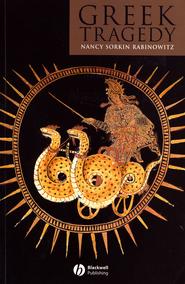
The book provides answers to the question "Why does Greek tragedy continue to matter to us?" The conditions leading to its emergence in Athens and the nature of performance in the fifth century were very different from anything in today's world; yet the plays continue to be read and performed. Greek Tragedy takes on this apparent paradox, making clear both tragedy's strangeness and its relevance for contemporary audiences/readers. The book sets ancient tragedy into its original performance context--theatrical, political and ritual.
At the same time, in part through its examination of contemporary performance practice, in part through its detailed reading of selected plays, the book explains why tragedy—a key element in the creation of democracy and a public forum where basic issues of politics, family, and gender relationships were considered in antiquity—continues to provide modern audiences with sources of both pleasure and intellectual interest.
Greek Tragedy sets ancient tragedy into its original theatrical, political and ritual context and applies modern critical approaches to understanding why tragedy continues to interest modern audiences.
-- Fiona McHardy, Roehampton University
At the same time, in part through its examination of contemporary performance practice, in part through its detailed reading of selected plays, the book explains why tragedy—a key element in the creation of democracy and a public forum where basic issues of politics, family, and gender relationships were considered in antiquity—continues to provide modern audiences with sources of both pleasure and intellectual interest.
Introduction
Greek Tragedy sets ancient tragedy into its original theatrical, political and ritual context and applies modern critical approaches to understanding why tragedy continues to interest modern audiences.
- An engaging introduction to Greek tragedy, its history, and its reception in the contemporary world with suggested readings for further study
- Examines tragedy's relationship to democracy, religion, and myth
- Explores contemporary approaches to scholarship, including structuralist, psychoanalytic, and feminist theory
- Provides a thorough examination of contemporary performance practices
- Includes detailed readings of selected plays
Reviews
"A new approach to a popular subject offering readings of some of the best-known Attic tragedies in both their ancient and modern contexts. The author's application of contemporary debates and issues to the ancient material is refreshing and stimulating. This book has much to offer."-- Fiona McHardy, Roehampton University
